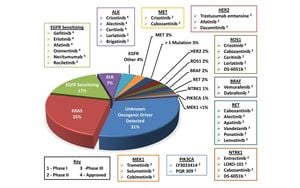With the German Bundestag election looming on February 23, 2025, two significant blunders have emerged from Lower Saxony, stirring concerns among voters and officials alike. Misprints on approximately 180,000 ballots have sparked debates about how mistakes during electoral preparations might affect the upcoming election. The errors, which involve incorrect spellings of candidate names and party labels, have raised questions not only about administrative efficiency but also about the integrity of the electoral process.
Specifically, electoral authorities uncovered miswritten names on ballots intended for the district of Lüchow-Dannenberg–Lüneburg. Despite these errors, officials have decided against creating new ballots for this district. They justified this decision by noting the errors do not disadvantage any party or candidate, stating, “Die Kreiswahlleitung habe entschieden, keine neuen Stimmzettel zu drucken, da die Fehler keine Partei oder Kandidaten benachteiligten,” according to Lower Saxony's electoral office.
Importantly, these errors came at a time when the state is also working to implement its new electoral reform laws. The upcoming election will be the first to benefit from these changes, which aim to simplify the electoral process by eliminating overhang and compensatory mandates. This reform is intended to address the bloated numbers of Bundestag representatives, which currently stand at 733 instead of the intended 598. By curbing the total number of seats based on the proportion of votes each party receives, the new laws wade through past complications with direct candidacies as well.
Another district, Salzgitter-Wolfenbüttel, responded differently. There, officials announced the invalidation of ballots due to swapped letters on party short forms, particularly affecting the Marxist-Leninist Party of Germany, abbreviated incorrectly as MLDP. The district administration indicated, “Der fehlerhafte Stimmzettel müsse durch eine korrigierte Version ersetzt werden,” signaling the pressing need to rectify the issue swiftly before vote counting begins.
The misprints illuminate the broader discussion surrounding electoral integrity as well as the potential disruptions caused by last-minute adjustments. Officials are currently outlining how to handle votes already cast by mail, with reassurances being provided to voters about the status of their ballots. “Bereits abgegebene Briefwahlunterlagen und künftige Stimmabgaben bleiben gültig,” they asserted, aiming to stabilize voter confidence.
But this isn't just about one mishap. The electoral reform proposes notable shifts, affecting how individuals view their roles within the electoral system. For the first time, only the Zweitstimme—second vote—will determine the makeup of the Bundestag. This has rendered the Erststimme—first vote—less impactful. Although it still allows voters to select favorite candidates, it no longer guarantees their direct entry to the Bundestag. The reform aims to streamline representation, reducing the number of Party-based seats and ensuring they reflect actual voting strength.
Voters are also cautioned about the significance of the Grundmandatsklausel, which remains intact under the new electoral rules. This clause assures representation for parties securing three district wins, even if they fail to cross the five-percent hurdle. This aspect invites parties like the Left Party, seeking to win direct mandates from key regions, illuminating the persistent influence and complexity of local votes on national representation.
Each misstep during the electoral process serves as a reminder of the importance of accuracy and transparency. With voter trust hanging delicately, officials are under pressure not just to administer the election smoothly, but to emerge beyond these errors to bolster electoral integrity moving forward. The upcoming Bundestag election presents both a challenge and an opportunity for reform, promising to reshape the political structure for Germany's future.
Therefore, as voters prepare to cast their votes for the next government, the significance of these misprints cannot be understated. The road to the new election process underlines the need for careful auditing and rigorous checks. With the countdown to February 23, 2025, the elections must be administered effectively to correct the course of the nation's democratic aspirations.



